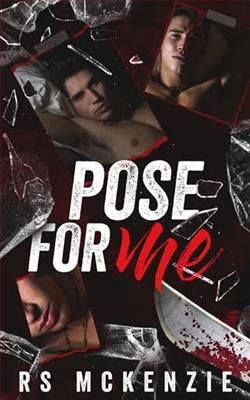Page 60 of Cold Case, Warm Hearts
“’Course they’re dead ’n gone,” Dean said. “There’s the Christiansens.”
“Seriously? Jeff’s her lawyer.” It was like a giant web that Garrett had known nothing about. “He was her father’s attorney.”
“Huh. Interesting. The major stockholders were out-of-towners. Don’t know their names, but they’re not around anymore.”
“They could be interested.”
Dean shrugged. “Point is, there’re people who care.”
That all made sense, but Garrett still didn’t understand something. “Why doyou, though? Why doyoucare what happened to Jane Kincaid?”
Dean turned the table leg over and rubbed the sandpaper along the opposite side.
A minute passed, two, and still he said nothing.
“Uncle?”
Dean looked up and met his eyes. “We were friends. What Jane Kincaid did, it hurt all of us, your aunt most of all. Jane blew up more than just that building. She destroyed a lot of lives,and then she vanished. So yeah, I want to know what happened to her. Your aunt wants to know.”
“Don’t put this on Deborah. You’re the one?—”
“For her sake, son. I want to know what happened to Jane for Deborah’s sake.”
The look in Dean’s eyes, the way he lowered his gaze back to his work, sent a jolt of suspicion through Garrett. For the first time in his life, he had the strong feeling his uncle wasn’t telling him the truth.
CHAPTER SIXTEEN
Aterrorist.
Aspen had hoped that Marion Eaton’s wild claims about a bombing and a murder were exaggerated, or perhaps an outright lie.
She hadn’t realized that she’d been harboring that hope until she sat in front of the computer monitor at the library the next morning. Thanks to her missing laptop, it was either the library or her phone, and she hated trying to read on her phone’s tiny screen.
She’d searched for all the information she could find about the lumber company bombing thirty years before. Her fear that she’d have trouble digging up old articles turned out to be in vain. Not only had the story been covered in the local newspaper, it’d been picked up in news outlets all over the state and in both major Boston papers.
The articles claimed the bombing was the work of environmental terrorists.
And more than one reporter attached Aspen’s mother’s name to that label.
A terrorist.
Aspen’s mother was a terrorist.
And a murderer.
Aspen felt sick to her stomach.
Everything Marion Eaton had told Aspen had just been confirmed, via multiple sources.
What occurred to her as she walked out of the library late Tuesday morning was that, if at any time during her childhood she’d typed her mother’s name into a search engine, she’d have discovered this information.
It had never crossed her mind that her mother’s disappearance had been part of a larger news story.
She was thankful, so thankful she hadn’t learned this when she was in her teens or even her twenties. She wished she didn’t know it now.
On the sidewalk in front of the library, she paused and looked up and down the street, trying to remember where she’d parked. It hadn’t been that long since she’d arrived, but she felt off, confused, as if her body had been transported to a different time, maybe a different universe. How could the world outside the library still be the same as when Aspen walked in? Everything in Aspen’s universe had shifted, and yet the world appeared exactly as it had before.
A hand slid around her upper arm, and she glanced up to see a man’s face. Tall and handsome with salt-and-pepper hair and a strong chin. He seemed familiar, but she couldn’t wrap her mind around him being there, or how she knew him, or why he was giving her that quizzical look.















